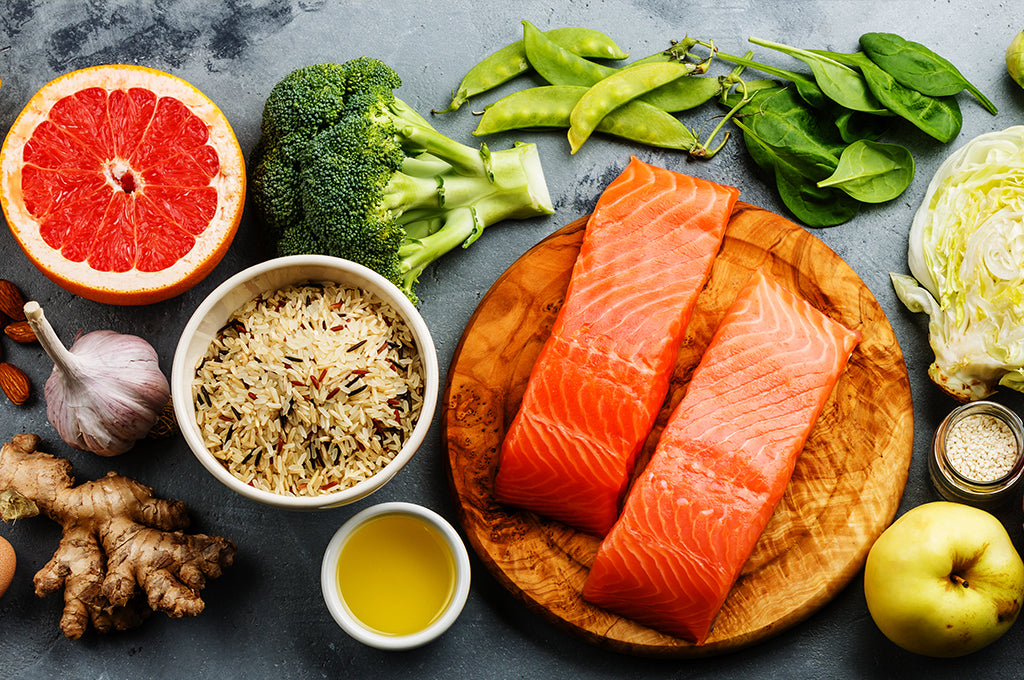The New Nordic Diet – Eat like a Viking! Well, not quite…
1st October 2018 / Health
The New Nordic Diet – Eat like a Viking! Well, not quite…
Zoe Milkowski

We’ve long been told about the benefits of the olive-oil rich Mediterranean diet but it seems as though a new region may be stealing the nutritional limelight.
The background behind the Diet…
The “New Nordic Diet” was developed back in 2004 by a group of chefs and nutrition experts originating from Norway, Iceland, Finland, Denmark and Sweden – collectively known as the Nordic region. Obesity rates were increasing and it seemed as though the traditional Nordic diet and lifestyle principles – like eating fresh, seasonal and additive-free homemade food, were being lost on the 21st century population. Based on the Baltic Sea diet pyramid, the new Nordic diet was born.
So, do you want to know how to eat like a Viking?
Firstly, the New Nordic Diet does not exactly resemble the meat-heavy and highly salted foods the old Scandinavians would have eaten. Instead, The University of Copenhagen (who formally developed the New Nordic Diet) suggest:
- Eating more fruit and vegetables every day – especially root vegetables
- Eating more whole grains, rather than refined
- Eating more seafood rather than red meat
- Eating meat of a higher quality, in smaller amounts
- Eating more organic, locally-grown and seasonal produce
- Eating more home-cooked food and avoiding additives
- Avoiding food waste
The final guideline is an interesting one and really highlights that the diet was not developed to become just another fad diet; the Nordic developers wanted to introduce a more sustainable and healthier way of living.
What foods should you be stocking up on?
- Berries and other seasonal fruits with low GI values
- Carrots, cabbage, potatoes and other seasonal legumes
- Nuts, seeds and unrefined whole grains like oats, barley and rye breads
- Both fatty and lean white fish
- Canola oil
What foods should you be eating in moderation?
- Low-fat dairy products
- Lean, game meats like bison
…and you should always remember that balance is the key to healthy and sustainable lifestyle. It is healthy to sometimes enjoy sugary drinks and treats, refined fast foods and processed meats.
How can the New Nordic Diet benefit me?
First and foremost, it doesn’t take a lengthy scientific study to show that obesity rates are generally a lot lower in the Nordic region than in the UK, or US where the western diet is predominant. This isn’t to say that everyone in the Nordic region follows the Nordic diet, however, generally, their culture and cuisine lend to a leaner lifestyle. The University of Copenhagen, who officially developed the diet guidelines conducted a study that proved the diet to be easy to stick to and beneficial for weight loss.
In addition, a key 2018 World Health Organisation (WHO) report has also shown that adopting the diet leads to a reduced risk of developing diabetes and cardiovascular disease.
Finally, a study from the University of Eastern Finland actually showed that the new Nordic diet reduced the expression of harmful, inflammatory genes found in fatty tissue – without the participant losing weight. These results were published in the American journal of Clinical Nutrition.
The benefits are strikingly similar to those of the Mediterranean diet. The two are generally quite similar; eat more locally-sourced, fresh produce, more oily fish and less processed foods. Yet, there is one major difference. The primarily plant-based New Nordic Diet uses a much lesser known oil than its Mediterranean counterpart - Canola. Of all the popular oils, canola oil is the lowest in saturated fat, the highest in mono-unsaturated (cholesterol-lowering) fats and the best source of omega-3.
If you want to eat more like the Scandinavians, but struggle with adding fish to your diet in significant quantities, a high quality fish oil supplement may be useful. Our Omega 3 Fish Oil is sourced from smaller fish like sardines and anchovies to avoid the accumulated levels of heavy metal contaminants found in larger fish at the top of the food chain.
From The Blog
-

25th February 2025 / Health
Empowering Women’s Health: Key Supplements for Well-being
Women’s health is a lifelong journey, with each stage presenting unique nutritional and wellness needs. From maintaining energy levels to supporting hormonal balance and bone health, the right comb...
Read article -

17th February 2025 / Health
Empowering Women’s Health: Lifestyle Tips and a Key Supplement for Perimenopause and Menopause
NaomiWomen’s health evolves through various life stages, and the transition into perimenopause and menopause brings unique challenges. During these phases, hormonal fluctuations can lead to symptom...
Read article -

10th February 2025 / Health / Products
The Best Foods and Drinks to Help Your Body Recover from Burnout
Burnout is a growing issue in today’s fast-paced work culture, leaving many people feeling exhausted, overwhelmed, and depleted. While rest and self-care are essential, nutrition plays a crucial ro...
Read article



